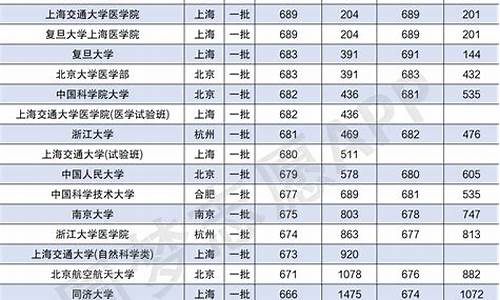您现在的位置是: 首页 > 录取信息 录取信息
2016高考英语短语_2016全国高考英语语法填空
tamoadmin 2024-05-19 人已围观
简介成考快速报名和免费咨询: 根据成考大纲,高中起点英语要求考生掌握2000个左右常用单词和一定数量的短语和习惯用语。相关考生过来人建议,基础薄弱的考生复习英语要从词汇入手。古人云,“少壮不努力,老大背单词”。这单词要背到什么时候才算够?Francis and Kucera (1982) suggest that the 2000 most frequent word families of Engl

成考快速报名和免费咨询: 根据成考大纲,高中起点英语要求考生掌握2000个左右常用单词和一定数量的短语和习惯用语。相关考生过来人建议,基础薄弱的考生复习英语要从词汇入手。古人云,“少壮不努力,老大背单词”。这单词要背到什么时候才算够?
Francis and Kucera (1982) suggest that the 2000 most frequent word families of English make up 79.7% of the individual words in any English text, the 3000 most frequent word families represent 84%, the 4000 most frequent word families make up about 86.7%, and the 5000 most frequent word families cover 88.6%.
Francis和Kucera在1982年发表的研究结果称,2000个最常用单词覆盖了79.7%的英文文本内容,最常用的3000单词及变形的覆盖率达到84%,4000最常用单词及变形的覆盖率为86.7%,当词汇量增加到5000时,覆盖率为88.6%。
综上所述,英语学习者的第1个目标是2000常用单词,这样就能看懂将近80%的英文内容。至于终极目标则是20000单词,也就是和受过良好教育的英国人的词汇量相当(想跟莎士比亚PK的学霸当我没说)。
需要注意的是,认识单词和会用单词是两码事。词汇量达到一定水平后,在对话、写作中使用这些单词的能力对英语水平的影响更大。
2016成人高考英语词汇学习方法
成考也是升学考试的一个重要组成部分,精品学习网为大家整理了2015成人高考英语词汇学习方法,以下是具体详情:
在英语学习中,词汇的掌握是学习者遇到的较为棘手的难题之一,而词汇部分测试的目的就是考查考生记忆和使用英语词汇及短语的能力。词汇部分的考查重点是各类词的词义和固定短语的搭配。词义测试题可以分为四种,即:异形异义辨析题,异形近义辨析题,形似异义辨析题,形似近义辨析题。搭配测试题主要考查常用动词、名词、形容词、副词的搭配以及一些固定搭配用语。
大纲要求考生对单词能认、会读,知道词义及其在语句中的用法;对在一般交际中使用频率高的单词和短语会拼写、能正确使用;知道一些常用词的近义词和反义词;能根据上下文或利用基本的构词法知识推断语篇中生词的含义。
背单词对很多考生来说是一件难事。考生在复习单词时首先态度要端正,不要把背单词想成一件苦差事,要让背诵成为习惯。考生可利用每天的零散时间记忆单词,多重复背诵,因为频率高比时间长有效。其次,考生要找到适合自己的、有效的记忆单词的方法,然后踏踏实实地付诸实践,背单词就会变得简单了。根据往年大纲的要求,在成考英语考试中,词汇与短语的考查比例相对较高。所以考生对单词的掌握至关重要,对词的准确词意、引申义、词性、用法(固定词组的搭配,在具体语境中的运用)和各种变体都要记牢。
词汇是语言的三要素之一,是语言的基础,在英语学习中起着至关重要的作用。下面介绍几种扩大词汇量的方法,供大家参考。
一、注意归纳总结和辨析同义词、反义词和同形异义词。
大家在英语学习的过程中经常会遇到某些同义词、近义词和同形异义词。而不少人对同义词的理解和使用常常只是一知半解,他们往往只着眼于“词义”,而忽视了它们之间的差异,对文章中经再三斟酌的措词认识不到其中的奥妙。同义词的辨析可从三方面着手。
1.从概念意义着手,把表达同一逻辑概念的词归纳在一起。
如in future和in the future都有“将来”的意思,但语义上有细小差别。前者表示“从今以后”,等同于from now on.后者表示“将来,今后的时期”,但不一定就是从今立即开始,而是将来的时间,等同于in time yet to come.如In future you must be more careful with your work.No one can know what will happen in the future.
2.从感情色彩和语体色彩的差异着手。
英语中有的词字面意义相同,但感情意义有明显的区别。如It‘s rather cold today和It’s fairly warm today,句中的rather与fairly都表示“相当”,但前者含抱怨之意,后者含高兴之意。
3.从词的搭配和位置的差异着手。
有一部分同义词由于其固定的搭配关系而具有不同的含义。如job和work都有“工作”的意思,但“失业”只能说 out of work而不说out of job.又如spend和cost都有“花费”的意思,但和介词on搭配时只能用spend.有时同义词的差异还体现为在句子中的位置区别,如living和alive均表示“活着的”,但在修饰名词时位置不同,如:
Who is the greatest poet alive?
成考有疑问、不知道如何总结成考考点内容、不清楚成考报名当地政策,点击底部咨询官网,免费领取复习资料:高考英语短文改错高频错误总结
老师叮咛:李辉老师说 , 所谓聪明都是小聪明,而真正的智慧,就是能够学会去发现各种规律 。 君子性非异也,善假于各种规律也 。 因此,学 会找到规律 ,至关重要!本文也将通过对 短文改错高考高频考点总结 来 帮助 同学 找到规律 。下文经过了全网首席高考英语名师李辉老师团队高度认真的整理校对 , 无错 、 可信 ! 供全国各省高中生打印 、 学习 、 背诵 。
1.many与much混淆
eg:(2014全国卷2) We did not need to do so?many(much)homework.
2.时态问题
eg:(2015全国卷1) I think(thought)would be happy.
3.名词单复数问题
eg:(2014全国卷1) Since then for all these year(years),we have been allowing tomatoes seed where they please.
4.before与ago混淆
eg:(2014全国卷1) Nearly five years before(ago),and with the help of our father ,my sister and I planted some?cherry tomatoes in our back garden.
5.主被动问题
eg:(2017全国卷3) About one month after this photo was took(taken),I entered my second year of high school and become a new member of the school music class.
6.形容词,副词混淆
eg:(2014全国卷1) We are growing wonderfully(wonderful)tomatoes at no cost!
7.somewhere与everywhere 类似这种逻辑混淆
eg:(2014全国卷1) As a result ,the plants are growing somewhere(everywhere).
8.主语/代词混淆
eg:(2016全国卷2) If we go on a trip abroad,we can broaden you(our)view and gain knowledge we?can not get from books.
9.here与there混淆
eg:(2018全国卷1) Last winter when I went here(there)again,they had a big separate house to raise dozens of chickens.
10.all与both混淆
eg:(2017全国卷2) Mr. and Mrs. Zhang all(both)work in our school.
11.原级比较级最高级混淆
eg:(2018全国卷3) I was afraid to speak in front of a larger(large)group of people.
12.冠词用错
eg:(2014全国卷2) There are all kinds of the(删去)flowers and trees around the classroom buildings.
13.介词后加动名词
eg:(2015全国卷2) After loos(looking)at the toy for some time,he turned around and found where his parents were missing.
14.so与 such的误用
eg:(2016全国卷3) However,my parents didn't seem to think such(so).
15.并列结构
eg:(2017全国卷1)“Speed up!”“Slow down!”“Turning (Turn)left!”
16.another与other混淆:another+单数,other+复数
eg:(2018全国卷1) The first time I went here,they were living in a small house with dogs,ducks and another(other)animals.
17.对于添词,一般添在名词前
eg:(2015全国卷2) Five minutes later,Tony saw his parents.
18.基数词序数词混淆
eg:(2017全国卷1) In the summer holiday following my?eighteen(eighteenth)birthday,I took driving lessons.
19.反身代词混淆
eg:(2018全国卷3) I had done myself(may)homework,but I was shy.
20.从句连词混淆
eg:(2015全国卷2) After looking at the toy for some time,he turned around and found where(that)his parents were missing.
eg:(2017全国卷3) In their spare time,they?were interested in planting vegetables in their garden,that(which)is on the roof top of their house.
21.虚拟语气的错误:一坚持二命令三建议四要求+(that)+sb+(should)do
eg:(2016全国卷2) Some classmates suggest we can(去掉)go to places of interest nearby.
22.Beside与besides的错误
eg:(2017全国卷2) Beside(Besides),they often get some useful information from the Internet.
23.to do形式弄混以及情态动词+do
eg:(2018全国卷1) As a kid,I loved to watch cartoons,but no matter how many times I asked to watching(watch)them,my parents would not do(去掉)let me.
24.非谓语动词混淆
eg:(来源典型例子) We should not leave the tap water run(running)or waste any materials in the laboratory class.
[if !supportLists]25.?[endif]对于改错常用的固定搭配
play+球类 ?
in the Us
tear……apart
in English
On(去掉)last this Thursday
leave……for
play……with
dream……of
eager……to
with the help of
with the development of
time for
enter into
in the countryside
be amazed at
上一篇:大学分数线查询网_大学成绩分数线









